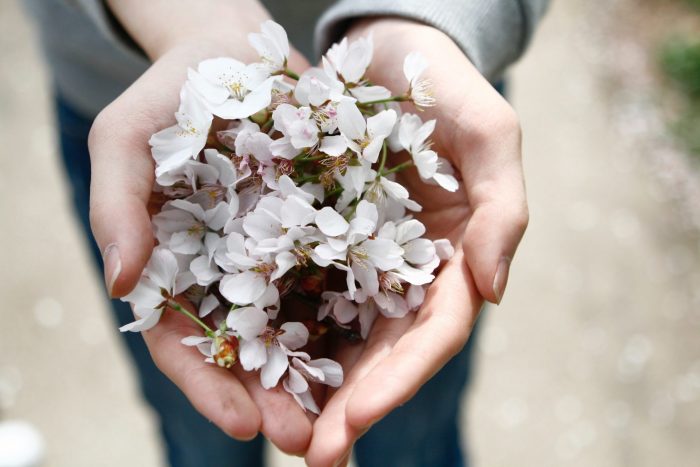
It’s December and the holiday season is swinging into full gear. While we are racing against time to prepare for holiday gatherings and buying gifts for everyone on our lists, it is easy, even sometimes natural, to put aside our own self-care in order for the holidays to run smoothly. At the same time, many of us are providing care to others, either as parents with children of our own or as caregivers to other adults. About 1 in 3 adults in the United States, or approximately 8.4 million adults, provides care to other adults as informal caregivers. There are many of you out there and this blog post is especially for you.
Some of the contributors of caregiver stress are: emotional and physical distress, overall health, financial concerns and caring for others before caring for oneself, resulting in feeling like one does not have the resources left for self-care.
Here at Ellenhorn we work with our clients to find creative yet doable ways to care for themselves, manage stress and nurture themselves. We also want to support families who are sharing in the caregiving and may have done so for many years. For the mental health community many caregivers have taken on that role for 8.7 years on average compared to 4 years for those caring for those living with any kind of illness.
We reached out to the professionals. The practitioners in our community who we consult with and asked them, “How do you care for yourself while helping others? And how do you do so during the busy holiday season”? Here is what they said:
“Ayurveda recognizes how seasonal changes impact our health. For example, as we transition to colder, drier weather, our diets should include warm moist foods like stews and healthy fats, cooked with warming spices (many of my go-to recipes are in The Everyday Ayurveda Cookbook). These serve to lubricate our digestive tracts and can reduce gas, bloating, and constipation, which for some, can be more prevalent in the colder seasons.” – Marni Chanoff, MD, Wellness Program Senior Advisor, Psychiatrist and Ayurvedic Consultant
“Having a way to enjoy the outdoors is a major factor for thriving in winter. Snowshoeing, cross country or alpine skiing, or just layering up and embracing long walks outside- find a way to embrace the season rather than hunkering down to wait it out. Movement, fresh air and especially contact with nature are the good medicine we all need. Finally, be mindful of how you think and talk about winter weather. Are snowstorms “terrible” or “awe-inspiring”? It depends on how you look at them”. – Douglas Baker, Psychotherapist, Mindfulness Coach, Yoga Instructor
“During the Fall/Winter/Holiday Season you’ll usually see me wearing a scarf. According to Chinese medical theory, wind penetrates the back of the neck making it easy for you to “catch a cold or flu”. This is called “invasion of wind”. It’s also a good time to eat warming foods. With the cooler weather your body needs to generate extra warmth in order to function optimally. A good winter diet consists of whole grains, root vegetables and hearty soups & stews”. – Sharon Levy, Acupuncturist
“Self-care is one of the most essential, yet often most ignored, necessities of being a caregiver of any sort. I am passionate about teaching healers to learn to tune into their own energy for mental and emotional well-being, so that they can develop self-awareness and take personal responsibility for when they need to step back and refill their tank. I try and give myself self-Reiki when I am feeling overwhelmed, and make sure and ask my family for time to myself if I need it.” – Vanessa Vlahakis, Reiki Practitioner
“No matter how busy I am, I try to maintain my routines around sleep, exercise and drinking enough water every day. I also like to keep peppermint and eucalyptus oils close by (peppermint is especially good for modulating the immune system, calming the digestive system and is antibacterial; eucalyptus oil is antimicrobial and can help to reduce the symptoms of coughs, colds or congestion). I like to add a few drops to my diffuser at home or put a few drops of the oils on my scarf if I’m on the go.” – Diana Cosmas, PACT clinician, Aromatherapist and Wellness Coordinator at Ellenhorn
“Generally, I have the very flexible daily yoga practice at home. During the holidays when things pick up and people are visiting I have to schedule. I find scheduling a special yoga class at a studio helps me to preserve that time, it gives me space (physical and mental) and can set the tone for the rest of the day”. – Lisa Carabuena, PACT Clinician and Director of the Wellness Program at Ellenhorn.
We hope these ideas inspire you to gift yourself time during this holiday season. To try something new or to rekindle an old routine. As caregivers it may come natural to think, “caring for myself will allow me to have the energy to continue being a better caregiver to my loved one”. We encourage you to consider the thought, “caring for myself is a personal right. I have the human need to take time for myself to rest, to replenish and to be well ”.
All stats are from the article: Weber-Raley, L. (2016, February 23). On Pins and Needles: Caregivers of Adults with Mental Illness (Rep.).

